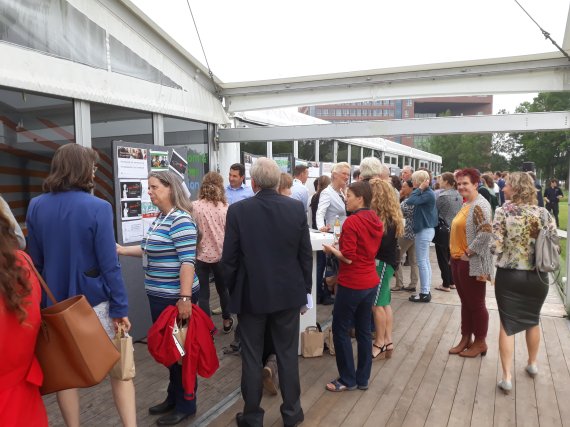© Albert Sikkema
Language policy is a hot issue in politics and media. Should the internationalisation and the increasing numbers of programmes offered in English be restricted, or are they necessary?
Working language
‘Wageningen should be English-speaking, considering its international mission and its students’, says Carolien Kroeze, member of the WUR as International Organisation strategy group. ‘We are therefore of the opinion that English should be the working language of the university. But Dutch should remain the working language of Wageningen Research, which has many Dutch clients.’ The working group advises the executive board to include this in WUR’s new strategic plan.
Partners
The Partnerships working group thinks that WUR should not work with all possible international partners anymore. We should choose which partners are important for us, says working group leader Bram de Vos, and then invest in those partners. ‘We currently find all partners important, but we don’t invest in any of them.’
Mandate
Everyone thinks One Wageningen is important, but a side note applies, thinks the working group that analysed Wageningen Research’s business model. We should give suitable people within WUR a mandate more often, so that they can elaborate plans instead of having endless discussions, states Ernst van den Ende. Appoint a responsible person, let them make their plan and evaluate afterwards.
All plans, ranging from stickers to elaborate proposals, are currently presented to the executive board. The board aims to have a new strategic plan for the period 2018-2022 by the autumn of this year.
In the past weeks, Resource highlighted the various working groups. Read what they discussed below.
Additional reading:
How many close partners do you need?
‘Focus more on independent thinking’
‘Give talented youngsters permanent contract’
Earn money with patents and apps

